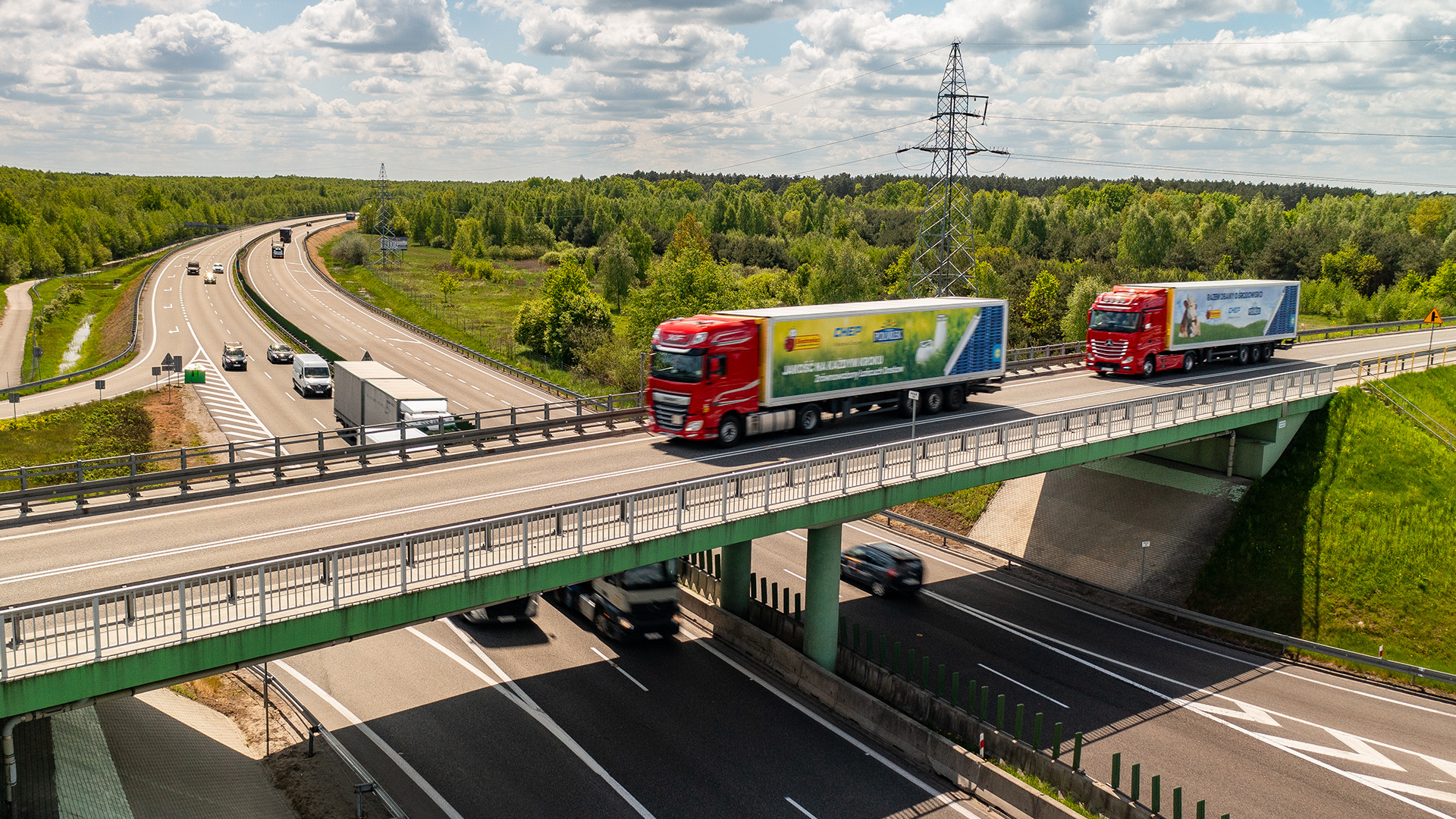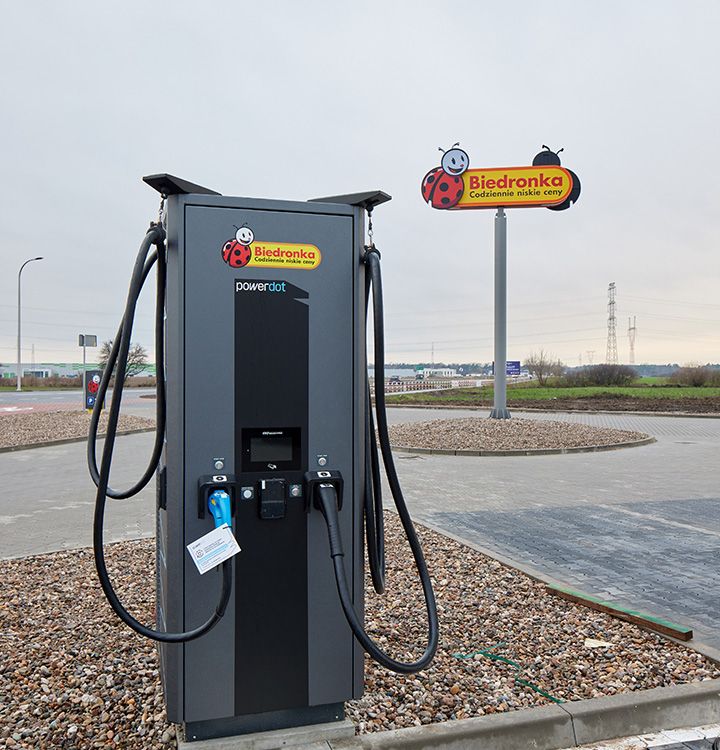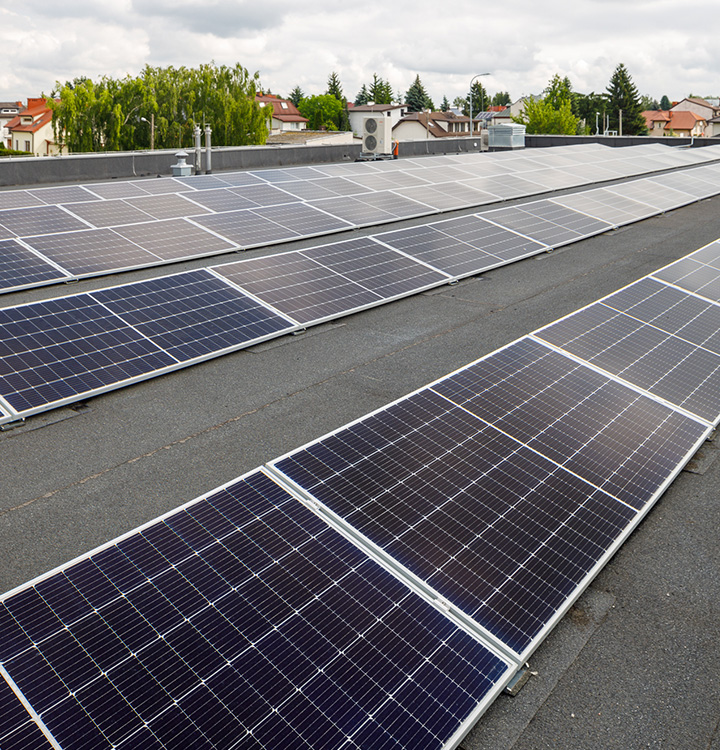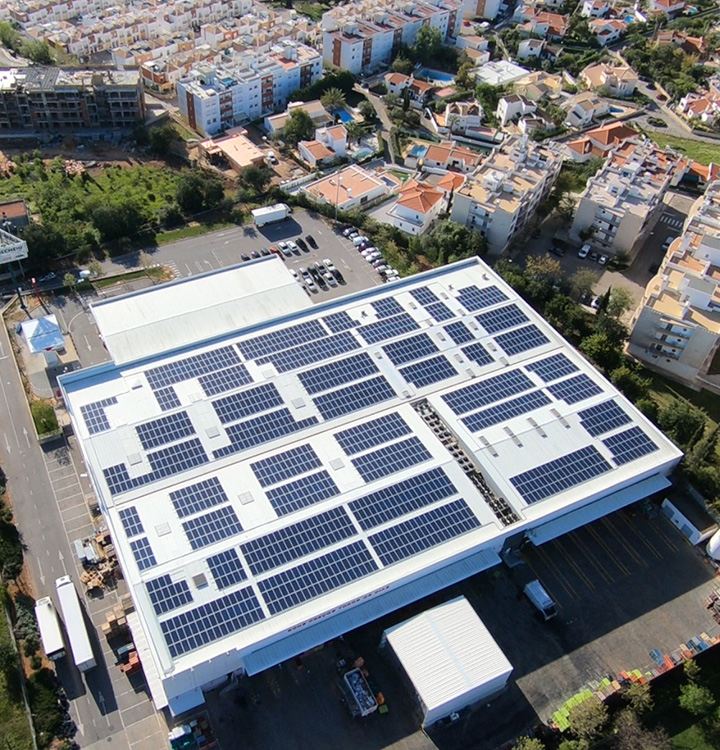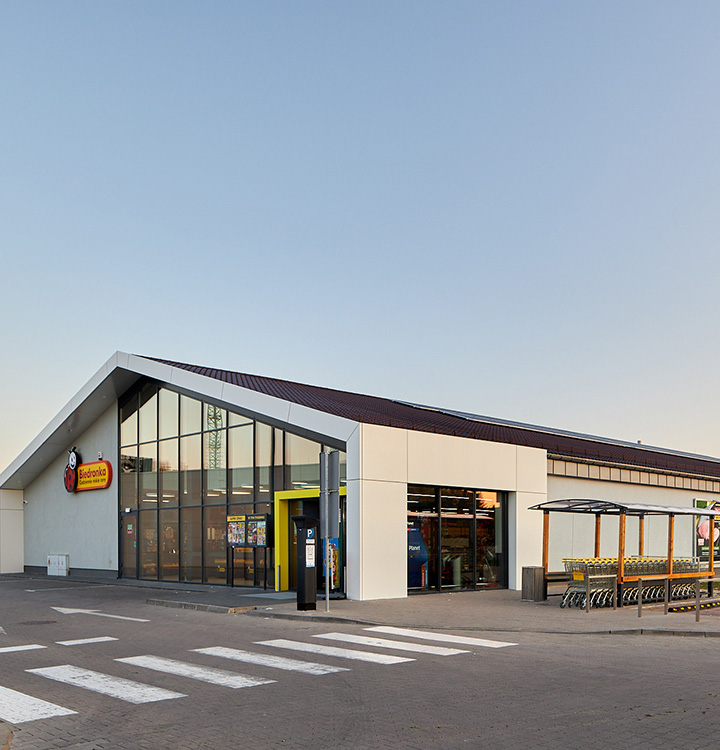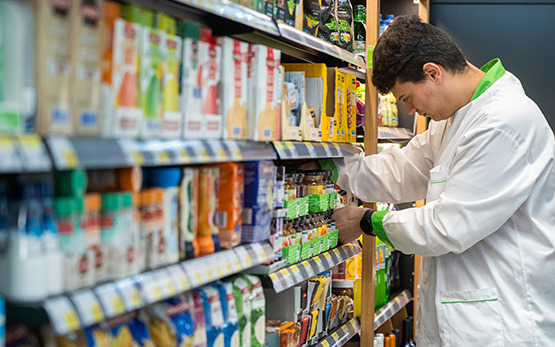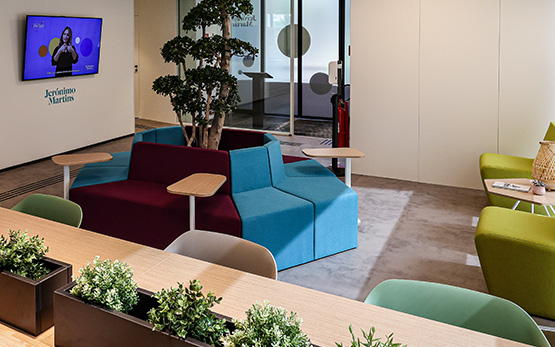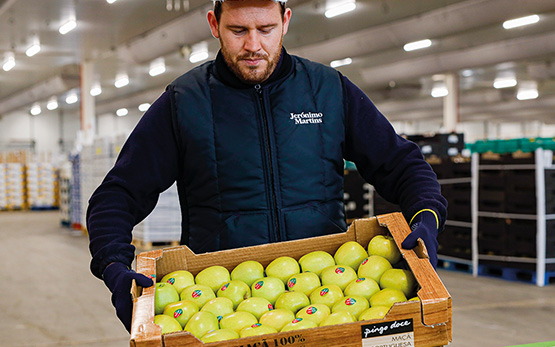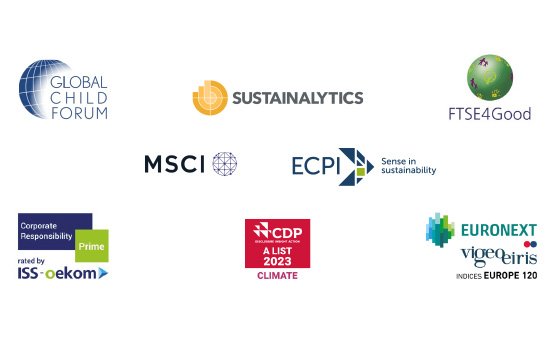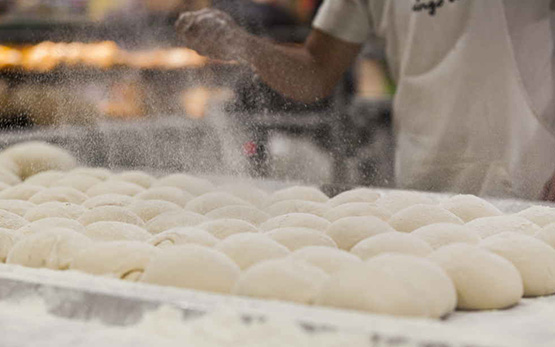In a world where information is everywhere, talk is cheap. But where does it lead? From climate change to the loss of biodiversity; from food waste to decarbonisation – there are a lot of challenges to address. Instead of talking about them, at Jerónimo Martins we choose to take action.
We are a business that needs fresh food in the stores every day, from dusk to dawn, from dawn to dusk. Even when the store is closed, freezers and refrigerators continue to work all night so that we keep products in perfect conditions. We are aware that the use of resources needs to be responsible and efficient, in order to reduce our environmental footprint.
energy from renewable sources consumed by the Group in 2023
And we have taken several steps towards a cleaner value chain. By the end of 2023, 430 of our stores in Portugal and Poland had charging points for electric and hybrid vehicles. We ended the year with almost 780 stores and distribution centres in Poland, Portugal and Colombia equipped with photovoltaic panels for self-consumption.
60
%carbon footprint reduction per 1,000 euros in sales (scopes 1 and 2) compared to 2017
15,772
tonnes of CO2e saved with our photovoltaic cells in 2023
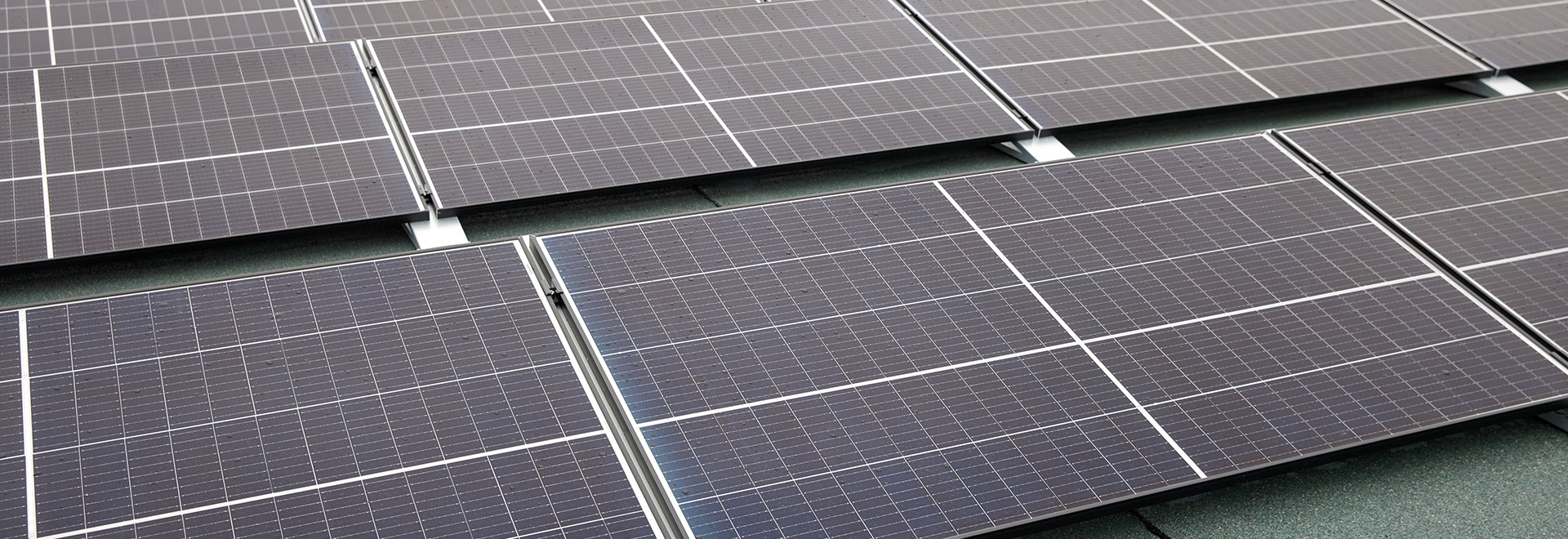
A better energy mix
We plan to accelerate our investments in cleaner technologies. Biedronka aims to have solar panels in all distribution centres and in around 2,000 stores by the end of 2024. We are also replacing refrigeration equipment with technologies that use natural or low global warming potential refrigerant gases. In 2023, 52% of our stores and 67% of our distribution centres and industrial units had this technology for refrigeration equipment.
Our ambition
55
%reduction in absolute greenhouse gas emissions by 2033 in our operations (scopes 1 & 2, taking 2021 as baseline)
60
%electricity consumption from renewable sources by 2030
by
2045
carbon neutral in our operations (scopes 1 & 2).
neutrality in value chain emissions (scope 3) by 2050.
Fighting food waste
As a food specialist whose operations include production and distribution, we have a duty and a responsibility to tackle food waste, involving all parts of the value chain. And we have several initiatives in place with that purpose. One of them could be called: “The ugly, the delicious and the nutritious”.
tonnes of “ugly” vegetables incorporated in food products between 2015 and 2023
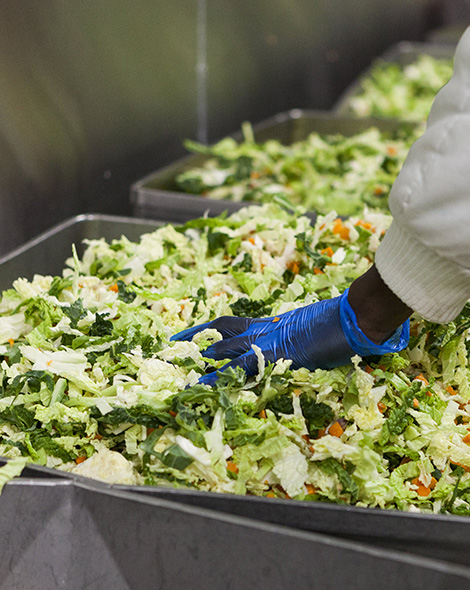
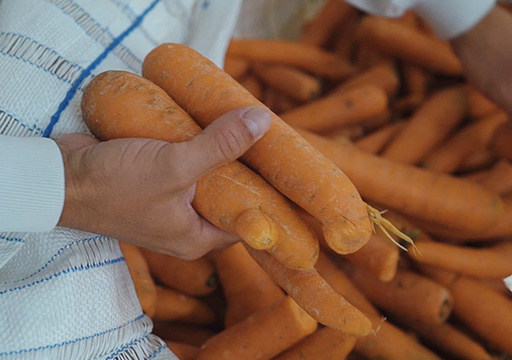
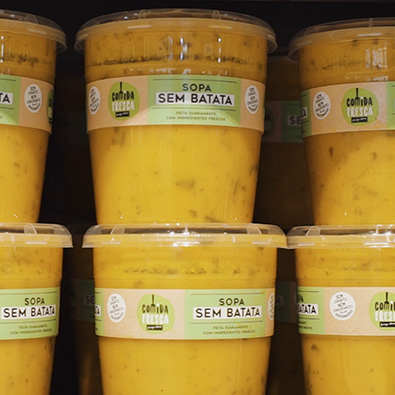
Whatever their shape, colour or appearance, all foods that meet food safety requirements have a place in our operations. The soups we produce in Portugal and Poland, which are available in the stores, incorporate non calibrated foods, known as “ugly” vegetables, whose nutritional profile is the same as that of calibrated products – we are talking of carrots, onions or potatoes, for instance. Also, the cut and washed, ready-to-use packed vegetables sold in Pingo Doce and Recheio stores in Portugal, are also obtained from these “ugly” vegetables.
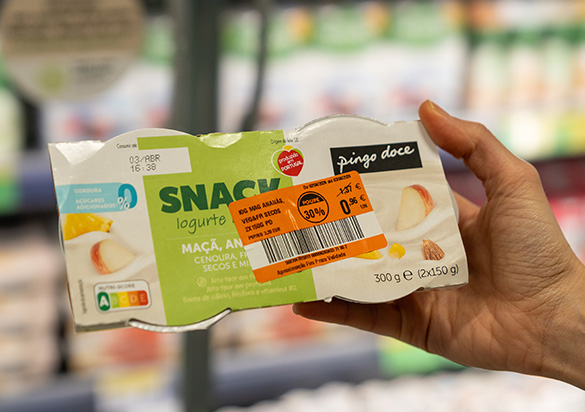

Orange sticker against food waste
With our markdown policy, we lower the prices of food products whose sell-by date is approaching. The discount is signalled by placing an orange sticker on the product. Markdown was implemented at Pingo Doce in 2019 and at Biedronka in 2020. Since its launch, the project has prevented 27,000 tonnes of food from being wasted.
Food donations
Surplus food that meets safety standards but, for some reason, cannot be sold is donated to charitable organisations. It is through our stores and distribution centres that we donate food to these institutions, with priority given to those working with the elderly, children and disadvantaged young people. In 2023, 19,000 tonnes of food were donated.

Protecting biodiversity
We share the world with a huge variety of living beings – plants, animals, fungi, bacteria. Each one is doing its job 24 hours a day, seven days a week. We don’t realise all the work that is going on around us, but it is their existence that guarantees ours. Loss of biodiversity is therefore one of the greatest challenges humanity faces, with multi-dimensional impacts and also on the food sector. In 2023 we invested more than 600,000 euros to support 14 projects to restore natural habitats, protect biodiversity and raise environmental awareness.
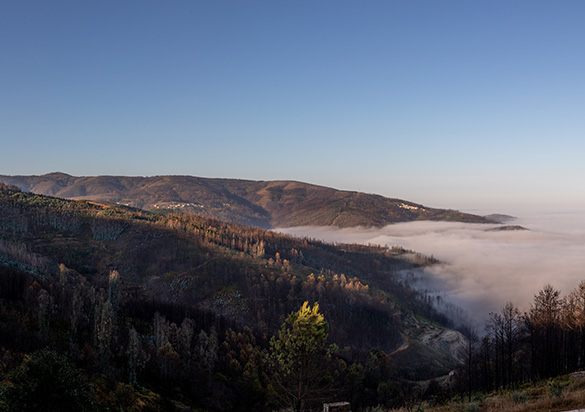

Reforestation of the Açor mountain range
In 2017, the Açor mountain range protected area in central Portugal lost around 80% of its trees due to forest fires. To promote its recovery and preservation, we set a partnership with the Arganil City Council, the Coimbra School of Agriculture and associations of common landowners to reforest an area of 2,500 hectares over 40 years. Between 2020 and 2023, 700,000 trees have been planted.
Support for endangered species in Poland
The project that Biedronka supports since 2021, promotes the protection of six endangered species: wolf, lynx, European bison, dolphin, Eurasian pygmy owl and hedgehog. In 2023, Biedronka supported the purchase of equipment to save hedgehogs in rehabilitation centres and the development of the Polish Red List of Species website, a joint work by the Polish IUCN Commission, the Institute of Nature Conservation of the Polish Academy of Sciences and Salamander – Polish Society for Nature Conservation.
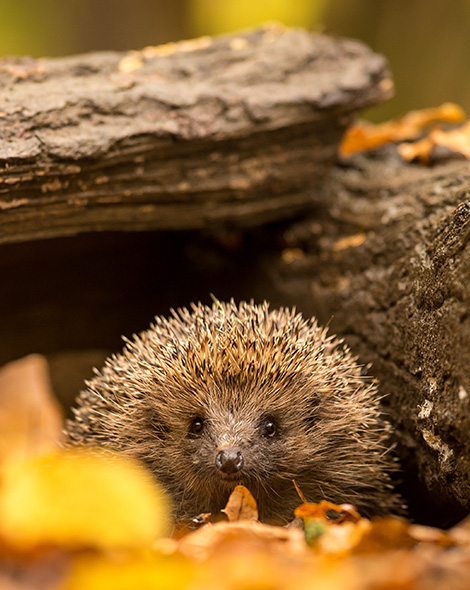
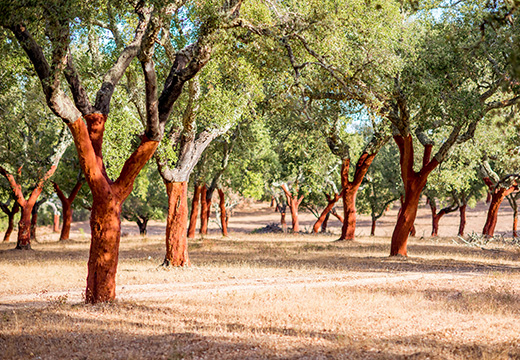
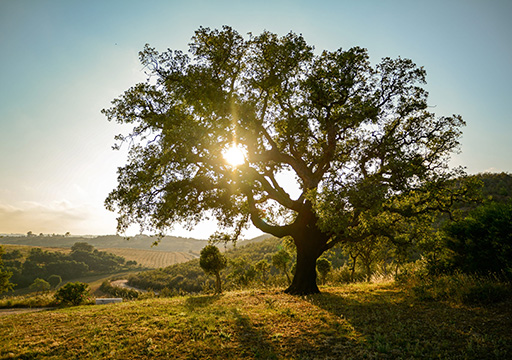
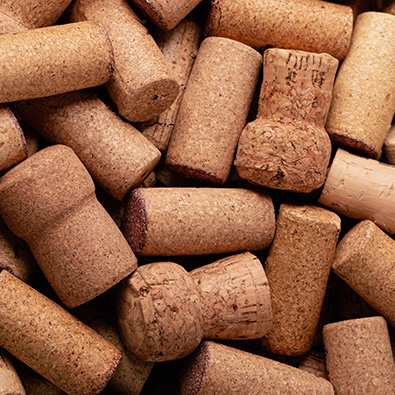
Green heart of cork
Developed and coordinated by ANP | WWF with the support of the Jerónimo Martins Group, since 2011 this project has been promoting the conservation of Portuguese cork oak forests and payment for the environmental services they provide. In 2023 we contributed to the conservation of more than 800 hectares of high conservation value forests.
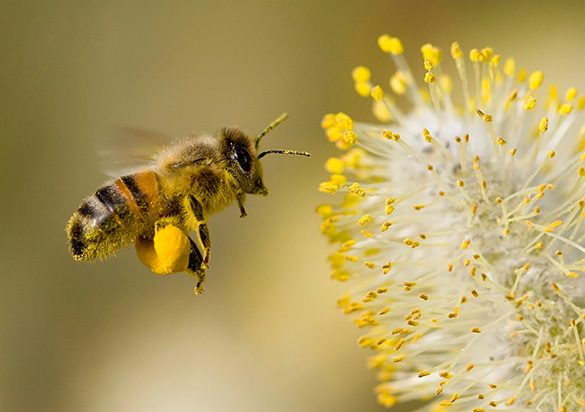

Protecting bees in Colombia
Pollinators, such as bees, are responsible for around 75% of all food worldwide. To protect and conserve bees in Colombia and raise awareness of their importance in ecosystems, Fundabejaz Foundation launched the project in 2021 with Ara’s support. In 2023, 1.2 million bees were rescued and sent in hives to nature reserves and 1.8 million recovered bees were delivered to beekeepers and farmers.
Promoting ecodesign
Packaging is the first point of contact consumers have with a product. Designing a package is much more than just creating something that catches the eye on the shelf. It is safe to say that when it comes to products, the outside also matters. To reduce the environmental impact and optimise production, transport and waste management costs of product packaging, we have been implementing our own ecodesign project for more than ten years.
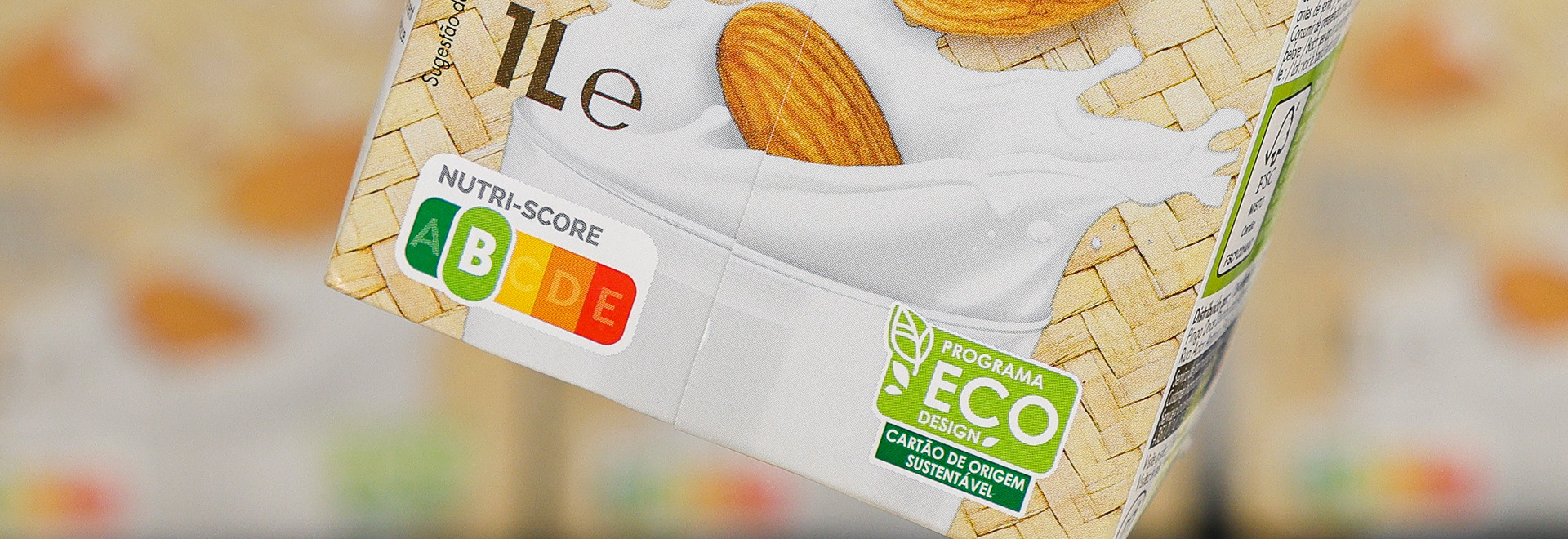
In addition, more than 80% of the paper and wood used for packaging in 2023 was recycled. As for the virgin fibres used in our private brand products, around 90% had a sustainability certification (FSC®, PEFC or SFI), meaning that the fibres come from sustainably managed forests.
30
%private brand assortment ecodesigned between 2011 and 2023
41,869
tonnes of plastic, cardboard, aluminium and other packaging materials avoided between 2011 and 2023

